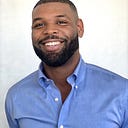The World Needs More Jane Elliotts — white people are needed in DEI
“I hope it is a woke black woman, I want to see radical change.” “Well, I hope it’s a strong black man ’cause I would like mentorship from someone who looks like me in this organization.” A few of the other members also voiced their own ideas of who they thought would be the new manager of the Diversity, Equity & Inclusion Committee. One guy asked, “well with a name like Shannon what would you expect?” At that moment, the door opens, and in walks a middle-aged white man. Everyone gasps.
Are you shocked by the reaction of the people on the committee? Are you shocked as well to discover that a white male is managing an inclusion initiative in an organization? This post highlights why unity in the workplace is needed and provides common solutions on how to amplify unity in your organization. Inclusion in the workplace does not exclude the “white man.”
First, I want to mention that a lot of readers will not find anything wrong with a white male representing a council of diversity, equity, and inclusion. However, I want to offer that if you feel this way and identify as being white, are you holding on to the idea that leadership should look like you? Or are you truly open-minded to any human being a leader? I believe that we need more white men in organized equity, unity & inclusion groups. It would be a contradiction to ask for unity, peace, and respect and yet exclude another. Those actions would perpetuate the trauma.
“We need allies in the workplace who are not tolerant of the BIPOC community, but stand in unity with us.”
Jane Elliot is a white, retired schoolteacher and is changing lives in this same fashion by highlighting the disparities of power and privilege of certain people in [organizations] and providing equality for all. She is awakening many people to the idea of racism and power in society, and its acts towards other communities consciously and unconsciously. Elliot believed that after witnessing the assassination of MLK, JR in 1968 there was a shift in mindsets amongst the white majority that triggered her. She has been traveling the world educating people on the acts of racism and how it affects lives and communities. I see her as a disruptor for the good because she is a white woman educating her white peers on the systemic effects of entitlement and power from the majority race.
BIPOC employees who have faced racism historically in their lives are carrying trauma with them. Conversations should be had frequently for the dismantling of these unconscious and conscious behaviors. This is why we need the understanding and knowledge of our white allies.
I believe that there should be an understanding from the perspective of white peers on how they see power, unity, and equity in the workplace. This can be done by:
- Weekly Unity ERG groups,
- community forums for employees to chat, and
- Zoom groups with specific leaders in the organization.
These are great places to initiate this dialogue. Our society is fragile right now with the recent killing of George Floyd and many others, however, we can’t celebrate too soon; We must continue to talk and understand each other as one conviction is not enough. My sister, Dr. D’Andra Moss, reminds me often that my emotions are not fact! What I may be feeling or thinking inside is not always the reality. Thus, I believe the more knowledge we can gather, the better we can understand how to Unite versus integrate, no matter the color of the person facilitating. The push back from DEI groups has been that the majority race does not understand the BIPOC community but examples from individuals such as Jane Elliot shows that having a white teacher can be effective. Something about white people calling out their white peers on their conscious and unconscious biases resonates differently than a BIPOC person calling it out.
No matter who’s doing the uniting, questions such as the ones that follow can be a great starting point.
- Does “Company X” have policies that clearly state the unification and equity of BIPOC employees?
- Do you believe BIPOC employees have the same opportunities for advancement in “Company X” as compared to non-bipoc employees?
- Are you aware of or part of an initiative that “Company X” has created to increase equity and inclusion for BIPOC employees?
- Do you know the mission and values statement of “Company X”?
- Do you feel you belong or fit in at “Company X”? How so?
- How often have you suggested ideas to leadership and it has been accepted or implemented?
Asking questions about the workplace environment and personal reflections can be a great place to start these conversations. The business could bloom or be dismantled due to the disruption of hidden racism or the trauma caused by racism in the employees. Elliot also notes in one of her experiences that most people, once they are aware of their behaviors and judgments, tend to defend their privileges and power or began to ask questions and start a journey towards equality and understanding. It’s in our nature to ask questions and grow closer to others. This leads to my final idea that the need for “togetherness” is what we are really longing for.
Privilege, white power, all of that social class bull has been created as a way to invoke hate. It was not created as a way of unifying us as people. Examples such as Jane Elliot, comes packed with sociological, cultural knowledge, and extensive understanding of the BIPOC hardships and trauma, therefore the precedence has been set. So, by all means, let’s invite that into the room because knowledge is power.
